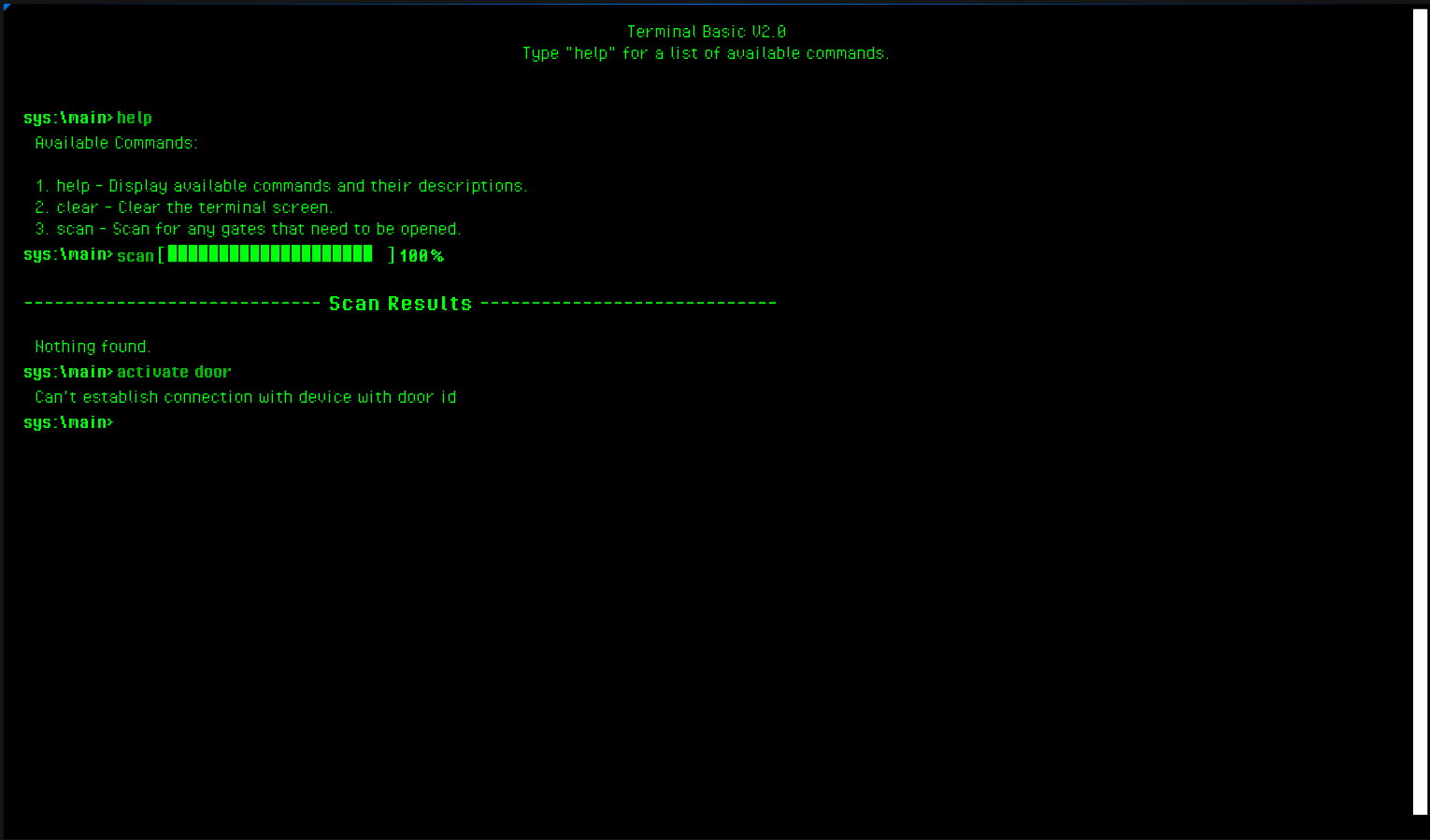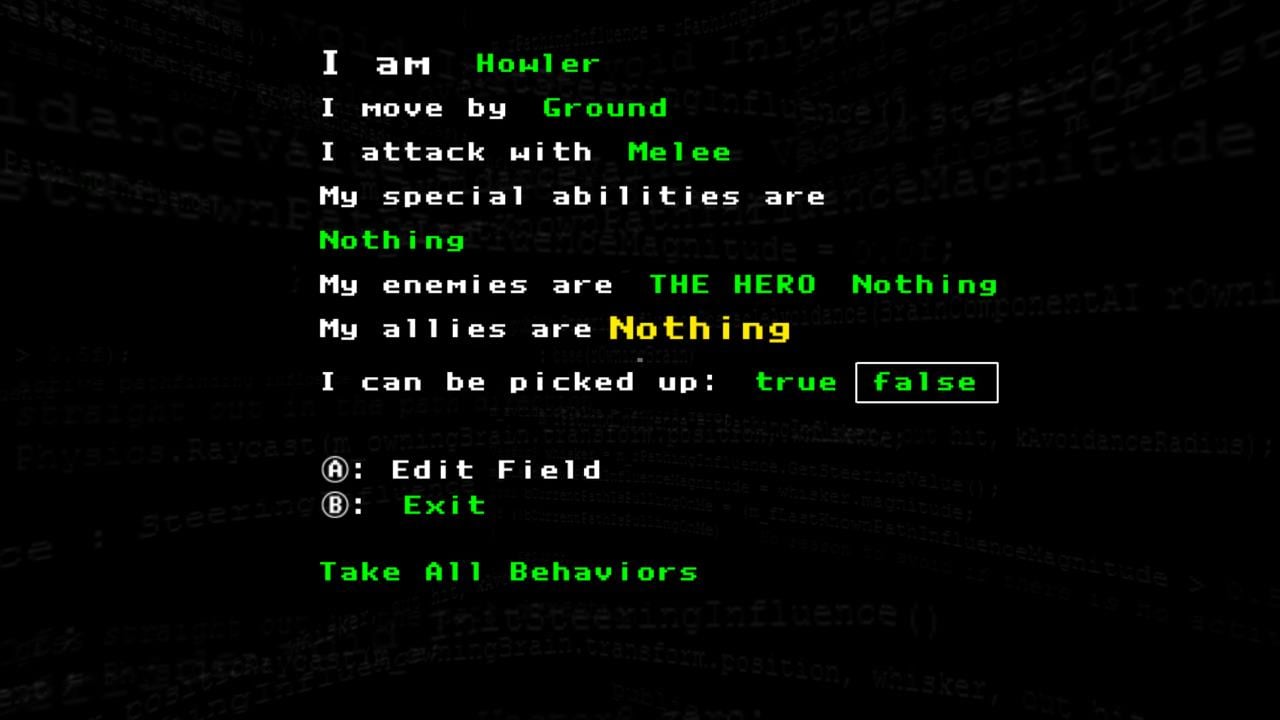Devlog #2: The Terminal and its Design
Hey there!
In Edge Case, one of the objects you will frequently interact with throughout the game world of “Genesis” is the terminal. In this second devlog, I would like to dive a little into the design and ideas behind the terminal, its user interface, and its logic. First things first, here is a screenshot of what it looks like at the moment:

Pretty cool, right? Well, let me temper expectations a little bit. This is not a technical breakdown of how the terminal was put together. Because it is still actively in development, I am going to leave that part for another devlog. Stay tuned if you're interested in that.
Where the Idea Came From
When coming up with the overall concept of the game, one of the things we thought about as a team was what kind of unique or unconventional approaches we could take when it came to the actions a player performed and how those actions could affect the game world.
For context, the theme of our game is "Abandonware," and we had settled on the idea of the in-game world of "Genesis" having intentional bugs that the player could use to their advantage.

Having seen games like The Magic Circle (image 1 above) and the still in-development Zero Page (image 2 above), I pitched the idea of having computer terminals around the game world that, based on how the player interacted with them, could affect said game world. The team agreed with the idea, and it ended up in the final game design document for the game. Speaking of design, let's get into that...
The Design of the Terminal
As stated before, the terminal itself is a device that players will interact with frequently in the game world of “Genesis.” Here is a quick rundown of how it works: the player will go up to a terminal in the game world, type a command into the user interface, and that command will affect elements of the world. Below is a bulleted list of examples:
- Typing "help" into the terminal will bring up a list of available commands that a player can use.
- Typing "scan" into the terminal will scan the area for a list of other interactable objects.
- Typing "clear" into the terminal will clear its screen.
- Typing "activate [object]" into the terminal will activate an object located near the terminal. For example, if a player types "activate door," the door near the terminal will open.
Another idea the team considered in the game's design document was the ability to toggle the visibility of colliders and hitboxes on the enemy. Whether we end up getting that ability into the terminal depends on how smoothly development goes in the coming weeks.
What are your opinions on the terminal? Is it a good mechanic? Is there more we could add to it?
I would like to hear your suggestions.
Until next time,
-Ben
Get Edge Case
Edge Case
A surreal adventure through a lost developer’s unfinished work.
| Status | Released |
| Authors | Samantha, thedevnamedben, FlynnCooper, Amerhane, JacobWaugh, wmcclain |
| Genre | Adventure |
| Tags | 3D, Atmospheric, Indie, Metroidvania, Narrative, Short, Singleplayer, Unreal Engine |
| Languages | English |
| Accessibility | Subtitles |
More posts
- Game Release and Reception89 days ago
- Devlog #11: Updated Outline Shader95 days ago
- Devlog #10: The Player is the Sound MixerJul 13, 2025
- Devlog#9: Expanding the Studio and Building GenesisJul 08, 2025
- Devlog #8: The Tech Behind the TerminalJul 07, 2025
- Devlog #7 Contando Historias a Través del Sonido: Voces, Ambiente y Música de...Jul 05, 2025
- Devlog #7 Storytelling Through Sound: Voiceovers, Ambience, and Background Music...Jul 01, 2025
- Devlog #6: Creando Objetos Interactivos con Blueprints. Español/Spanish version...Jul 01, 2025
- Devlog #6: Creating Interactive Objects with BlueprintsJun 28, 2025
- Devlog #5: Resaltado y prompt de interacción. Español/Spanish version.Jun 25, 2025

Leave a comment
Log in with itch.io to leave a comment.